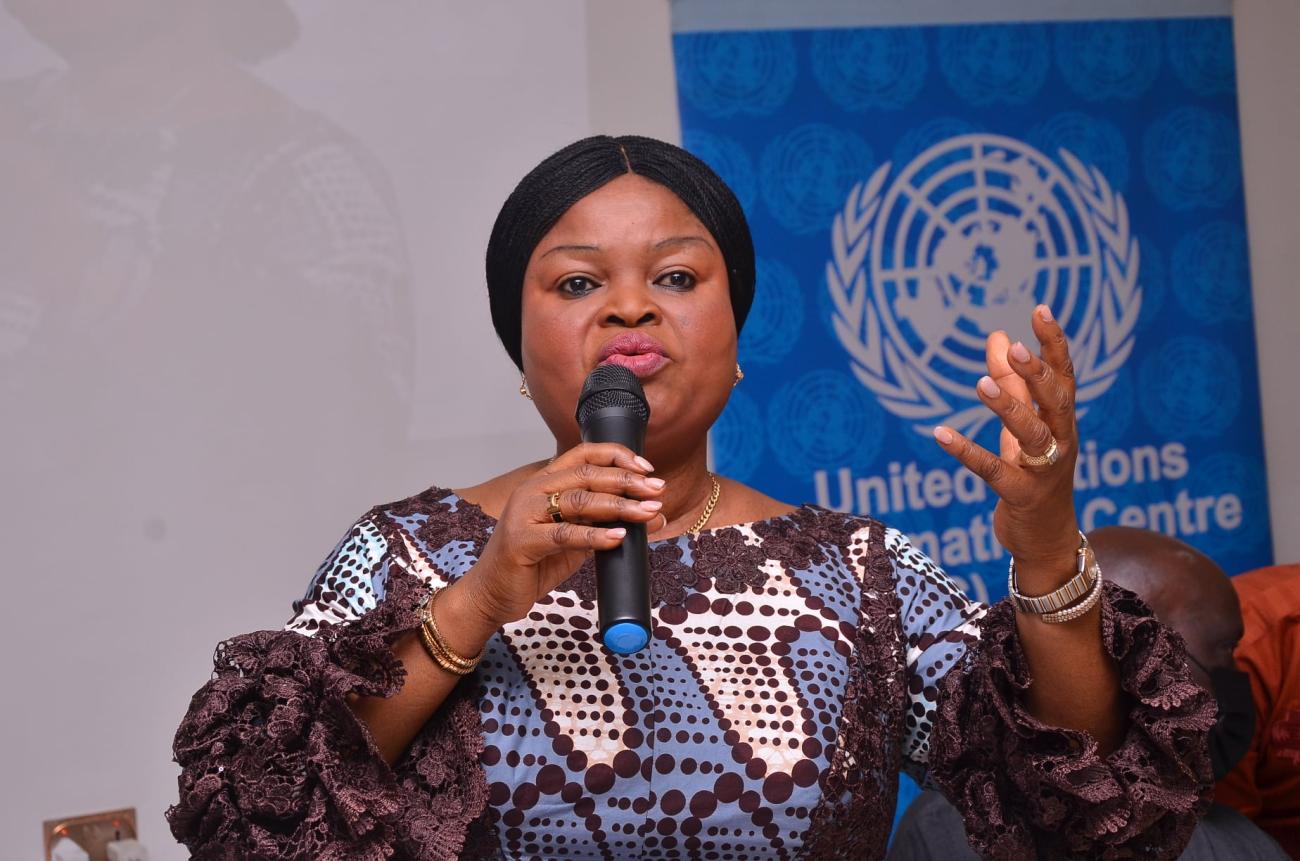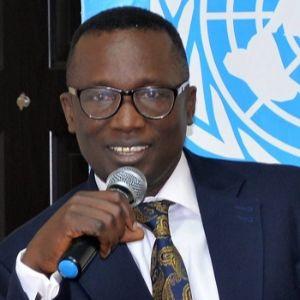The Federal Government of Nigeria has commended the United Nations Information Centre (UNIC) and Media Awareness and Information For All Network (MAIN) for their commitment to advocacy, sensitization and training of critical stakeholders, especially journalists, on the Sustainable Development Goals (SDGs).
Speaking at the training of journalists on SDGs held in Maiduguri, the Borno State capital, on Monday 7 March 2022, the Senior Special Assistant to the President on SDGs, H.E. Princess Adejoke Orelope-Adefulire, expressed her appreciation to UNIC and MAIN "for facilitating this strategic initiative. It is gladdening to have us utilise this platform to engage and reaffirm your contributions as critical stakeholders and partners in advocacy and sensitization for the achievement of the Global Goals and for our national development."
The training in Maiduguri was the flag-off of series of training workshops planned to take place in the six geo-political zones of Nigeria. Other locations are Kano (North-Central); Abuja (North-Central); Enugu (South-East); Uyo (South-South); and Lagos (South-West).
Princess Adefulire explained that the nexus of Journalism and the SDGs places the media at the core of sustainable development - both as contributors and as beneficiaries.
She re-affirmed President Muhammadu Buhari’s commitment to the successful implementation of the SDGs in Nigeria.
“We urge you to strengthen partnership and collaboration with us, as we continue to advocate for inclusive and sustainable national development in this ‘Decade of Action’ for the SDGs.” She added.
The Director of UNIC, Ronald Kayanja, acknowledged the strategic importance of the media in the achievement of the SDGs, noting that they have a critical role to play at the national and sub-national level.
Mr. Kayanja noted that the involvement of UNIC in the training of Nigerian journalists on SDGs and the establishment of Network of Sustainable Development Journalists underscored the commitment of United Nations to media training and achievement of the SDGs by 2030.
According to him, “We are in the Decade of Action which calls for accelerating sustainable solutions to all the world's biggest challenges – ranging from poverty and gender to climate change, inequality and closing the finance gap. Sustainability Journalism is one of the drivers of solutions to the social, economic and environmental challenges.
The chairman of MAIN, Prof Lai Oso, explained that the training would be held in the six geo-political zones of Nigeria, with Maiduguri being the first.
He stated the objectives of the training as capacitating journalists with knowledge of sustainable development, to engender high-quality journalistic practice that holds government accountable to Agenda 2030; acquainting journalists of SDGs targets and indicators and how to monitor specific indicators of SDGs and generate compelling stories and reports that will galvanise local and people’s action for sustainable development in Nigeria; and strengthen the capacity of participants in sustainability reporting with emphasis on economic, social and environmental dimensions; among others.
He emphasised that the overall outcomes of the training would be to enhance skills and knowledge of journalists to approach reporting from the sustainability perspectives; and to establish a “Sustainability Journalists’ Network” that will engage regularly to report and view development initiatives in Nigeria from the prism of sustainability.



















